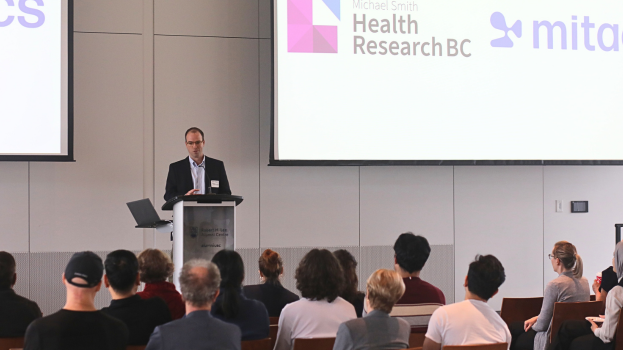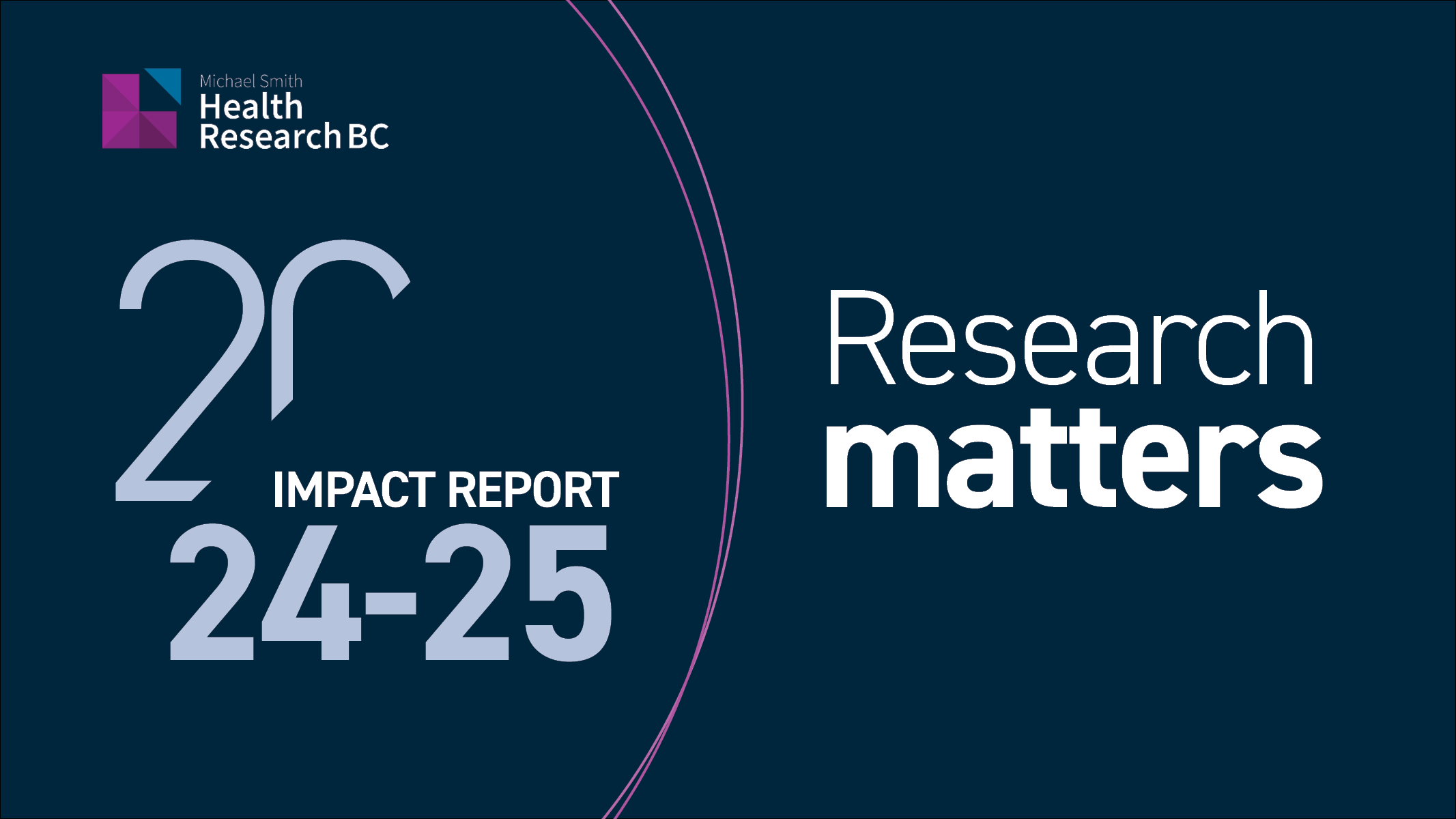Gold Leaf prize winner Dr. Erin Michalak reflects on the power of community-based participatory research
18 June 2019

Two-time MSFHR award recipient Dr. Erin Michalak has spent her career working to combat stigma and improve the quality of life for persons living with bipolar disorder (BD). On June 20, 2019, she was presented with the prestigious CIHR Gold Leaf Prize for Transformation: Patient Engagement for her work founding CREST.BD, a multidisciplinary team of researchers, patient partners and knowledge exchange experts studying BD. She discusses the inspiration behind CREST.BD and the importance of working hand-in-hand with patients and members of the BD community.
“I can remember the precise moment when I decided to create CREST.BD,” says Dr. Michalak. “I was an early-career researcher, studying the relationship between BD and quality of life, and had just interviewed Victoria Maxwell, an actress and mental health educator who lives with the condition.”
“Our conversation covered a wide range of topics: identity, employment, stigma, spirituality, and psychosis. After the interview, I thought, ‘Who am I to assume that I can do a good of job studying this alone? Or in the context of just my discipline, psychiatry?’ It was abundantly clear that a multi-disciplinary team approach was needed – and that the voices of people with lived experience had to be at its core.”
With that in mind, Dr. Michalak began laying the groundwork for CREST.BD – the only program in the world to apply a community-based participatory research (CBPR) approach to the study of BD. CBPR ensures researchers work hand-in-hand with patients and members of the BD community at every step, from setting priorities to developing research protocols.
Empowering communities; enriching knowledge sharing
“CBPR approaches offer us a different way of viewing what constitutes expertise – they’re designed to empower people and communities to engage in research, to value lived experience, to be more bottom-up than top-down, and to generate results that can put into action by the communities themselves,” says Dr. Michalak.
“They can also be harnessed to promote – and build on – the inherent strengths of people and communities. This is a significant opportunity in the BD field, as the condition can come with remarkable strengths, such as enhanced creatively. CBPR approaches can leverage these strengths for improved research and knowledge translation. In doing so, they hold the potential to dismantle some of the stigma associated with conditions like BD.”
From idea to reality
“Funding from MSFHR has been integral to this research,” says Dr. Michalak. “My 2004 MSFHR Scholar award was critical to my career. It allowed me to fully immerse myself in developing our network at the perfect point in my career.”
A 2006 MSFHR Team Planning award built on this by empowering Dr. Michalak and her team to work collaboratively with people living with BD and health-care providers to set their research agenda. This same research agenda – a focus on quality of life, self-management, psychosocial interventions and stigma – guides their work over a decade later.
National recognition for commitment to patient inclusion
The team’s dedication to honouring the patient voice has now been recognized on a national scale with the CIHR Gold Leaf Prize. “We’re still on cloud nine,” says Dr. Michalak. “Receiving this award is a testament to the impact of our work,” she says, “but also to our resiliency and collective passion for what we do, and we’re tremendously excited for the work that lies ahead of us.”
More information about Dr. Michalak and her team’s work is available on the CREST.BD website.





